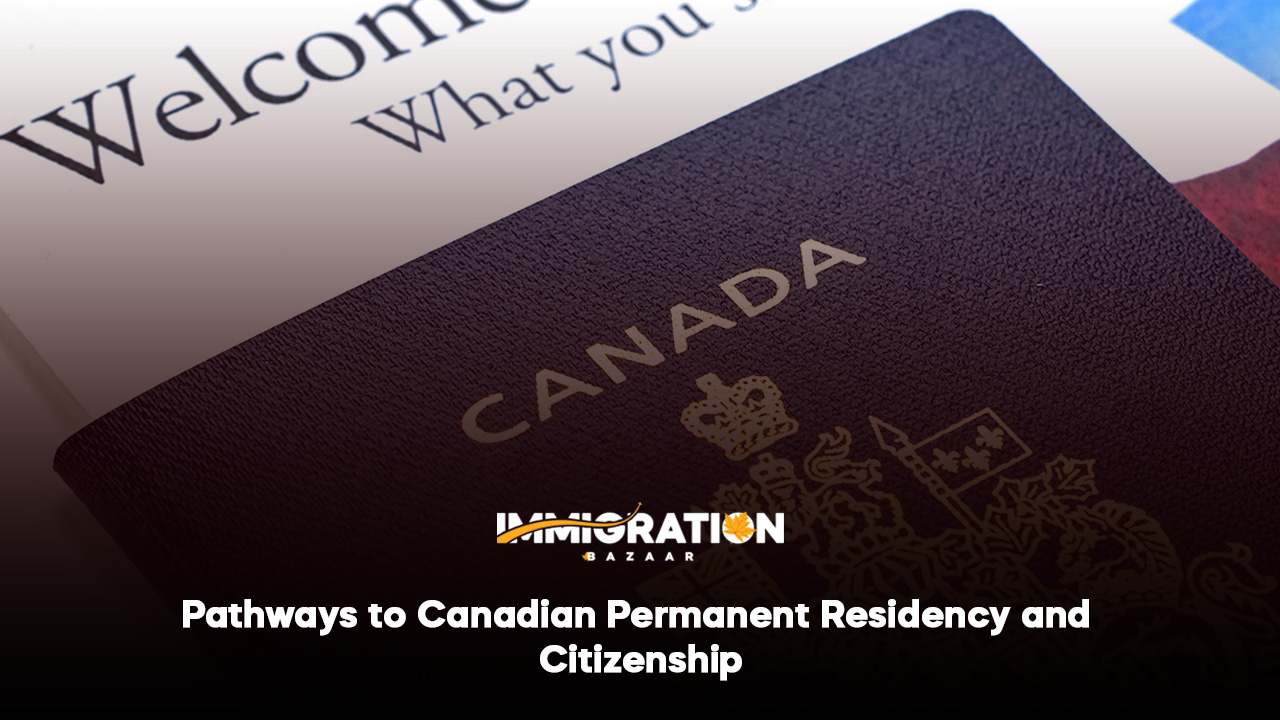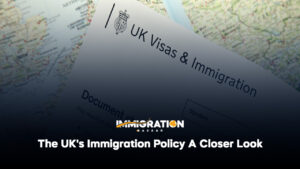Canadian permanent residency (PR) and Canadian citizenship represent two distinct legal statuses that offer varying rights, responsibilities, and obligations to individuals living in Canada. Understanding these differences is essential for anyone planning to live, work, or study in Canada, as the path to each status varies significantly in terms of requirements, benefits, and the legal frameworks governing them.
In this detailed comparison, we’ll explore various aspects of Canadian permanent residency and citizenship, including the pathways to obtaining each, the rights and privileges they afford, the responsibilities they entail, and the ways they impact individuals’ legal status in Canada. This analysis will provide insights into which status might suit individuals’ needs, aspirations, and long-term plans in Canada.
-
Pathways to Canadian Permanent Residency and Citizenship
Permanent Residency: Obtaining Canadian permanent residency typically involves going through an immigration process that assesses applicants based on factors like work experience, education, language proficiency, and other credentials. Key pathways to permanent residency include:
- Express Entry: A points-based system for skilled workers, including the Federal Skilled Worker Program (FSWP), Canadian Experience Class (CEC), and Federal Skilled Trades Program (FSTP).
- Provincial Nominee Program (PNP): Allows Canadian provinces and territories to nominate individuals who can contribute to the local economy based on regional labor market needs.
- Family Sponsorship: Canadian citizens and PR holders can sponsor family members for permanent residency, including spouses, common-law partners, children, and in some cases, parents and grandparents.
- Business and Investor Programs: Designed for entrepreneurs, investors, and self-employed individuals who want to establish or invest in Canadian businesses.
- Humanitarian and Refugee Programs: For individuals in need of protection and asylum, offering a path to permanent residency.
Canadian Citizenship: Permanent residents can apply for citizenship after meeting certain criteria, usually after a period of physical presence in Canada. Requirements for citizenship generally include:
- Residency Requirement: Individuals must live in Canada for at least 1,095 days (3 years) within the last 5 years as a permanent resident.
- Language Proficiency: Proficiency in either English or French, with language requirements applying to applicants aged 18–54.
- Knowledge Test: Applicants must pass a test on Canadian history, values, institutions, and symbols.
- Clearance of Legal and Tax Obligations: Applicants must meet all legal obligations, including paying taxes.
-
Rights and Privileges of Canadian Permanent Residency vs. Citizenship
Rights of Permanent Residents: Canadian PR holders enjoy several rights that enable them to live and work freely within Canada. However, they have some restrictions compared to citizens. Key rights for permanent residents include:
- Living and Working in Canada: PR holders can live, work, and study anywhere in Canada.
- Access to Healthcare and Social Benefits: They have access to publicly funded healthcare and social benefits similar to those available to citizens.
- Pathway to Citizenship: After meeting residency and other requirements, PR holders can apply for citizenship.
- Legal Protections: PR holders are protected under Canadian law and the Canadian Charter of Rights and Freedoms.
However, PR holders are not permitted to:
- Vote in federal or provincial elections.
- Run for public office or engage in jobs that require high-security clearance, such as certain government positions.
- Hold a Canadian passport for international travel; PR holders use passports from their country of citizenship along with a Canadian PR card for re-entry into Canada.
Rights of Canadian Citizens: Canadian citizens enjoy the full spectrum of rights available under Canadian law, with additional privileges that PR holders do not have. These include:
- Right to Vote and Run for Office: Citizens can participate in federal, provincial, and municipal elections. They can also run for public office and take on government roles that require Canadian citizenship.
- No Residency Requirements: Citizens are not required to live in Canada to maintain their citizenship, whereas PR holders must meet residency requirements to retain their status.
- Canadian Passport: Citizens can apply for a Canadian passport, which offers visa-free or visa-on-arrival access to numerous countries and represents an additional layer of international protection.
- Eligibility for More Government Jobs: Some government and military positions are exclusively available to Canadian citizens.
-
Responsibilities of Canadian Permanent Residents vs. Citizens
Responsibilities of Permanent Residents: PR holders must fulfill certain responsibilities to maintain their status. Key responsibilities include:
- Residency Requirement: PR holders must live in Canada for at least 730 days (2 years) within a 5-year period to retain their status. These 730 days do not have to be consecutive.
- Compliance with Canadian Laws: Like all residents, PR holders must comply with Canadian laws, including paying taxes on Canadian income.
- PR Card Renewal: PR holders must renew their PR card every 5 years, ensuring that they meet the residency requirement during each renewal period.
- Adhering to Employment Limitations: PR holders are not eligible for certain government jobs that require citizenship.
Failure to meet residency requirements or compliance issues can lead to the loss of PR status.
Responsibilities of Canadian Citizens: In addition to basic legal obligations such as tax compliance, Canadian citizens have a few other responsibilities:
- Civic Participation: While not mandatory, Canadian citizens are encouraged to participate in the country’s democratic processes, such as voting.
- Jury Duty: Canadian citizens may be required to serve on a jury if summoned, a responsibility not applicable to PR holders.
- Adherence to Laws and Tax Obligations: Like PR holders, citizens must follow Canadian laws and fulfill tax obligations for both domestic and, in certain cases, foreign income.
-
Maintaining Status: Canadian PR Card vs. Canadian Passport
Canadian PR Card: PR holders use a PR card as proof of their status when traveling. This card is essential for re-entering Canada and is typically valid for five years. Renewal of the PR card requires proof of meeting the residency obligation.
Canadian Passport: Canadian citizens use a Canadian passport when traveling internationally, offering numerous travel benefits, such as visa-free entry or visa-on-arrival in many countries. The Canadian passport is recognized globally and provides access to Canadian consular support abroad, an added layer of security not available to PR holders.
-
Loss of Status: Revocation and Renunciation
Losing Permanent Residency: Permanent residency can be lost if PR holders fail to meet the residency requirement, commit a serious crime, or violate immigration law. However, PR holders have the right to appeal the revocation of their status in some cases.
Losing Citizenship: Canadian citizenship can only be revoked in extreme cases, such as obtaining citizenship through fraud or involvement in serious crimes like terrorism. Citizenship is more secure than PR status, as it is generally irrevocable unless obtained under fraudulent circumstances.
-
Dual Citizenship and Travel Flexibility
Canada allows dual or multiple citizenships, which is beneficial for citizens who may also hold other passports. This dual-citizenship flexibility allows Canadian citizens to maintain strong connections with their country of origin without losing any Canadian rights. PR holders, however, must rely on their country’s passport, which may affect international travel flexibility.
-
Impact on Family Members: Sponsorship and Citizenship by Descent
Family Sponsorship: PR holders and citizens can sponsor family members, but only citizens can pass on citizenship to children born abroad. For PR holders, children born outside Canada will not automatically gain Canadian PR or citizenship status; they must go through the sponsorship process.
Citizenship by Descent: Canadian citizens can pass on citizenship to children born abroad, provided they are the first generation born outside Canada. This provision is beneficial for Canadian citizens living internationally, as their children retain the right to live and work in Canada without going through the PR process.
-
Voting Rights and Political Participation
One of the defining privileges of Canadian citizenship is the right to vote in elections and run for public office. PR holders do not have these rights, which limits their participation in Canada’s democratic process.
Conclusion: Choosing Between Canadian Permanent Residency and Citizenship
For those aiming to settle permanently in Canada, both PR and citizenship offer a pathway to stability, with each status conferring a different set of rights, responsibilities, and opportunities. While permanent residency provides access to healthcare, social benefits, and a pathway to citizenship, Canadian citizenship offers greater security, civic participation rights, and global mobility through a Canadian passport.
Individuals must assess their long-term goals and commitments to decide which path aligns best with their aspirations in Canada. For those seeking to engage fully in Canadian life, including participating in its democratic processes, citizenship offers a higher level of inclusion and security. However, for those focused primarily on career and residency, permanent residency provides a viable option without the requirements tied to citizenship applications.
Canada’s immigration and citizenship policies reflect its values of inclusivity, diversity, and respect for personal freedoms, making it one of the most attractive destinations globally. The choice between PR and citizenship ultimately depends on individual priorities and goals, but both statuses provide a welcoming, stable, and rewarding experience in Canada.







